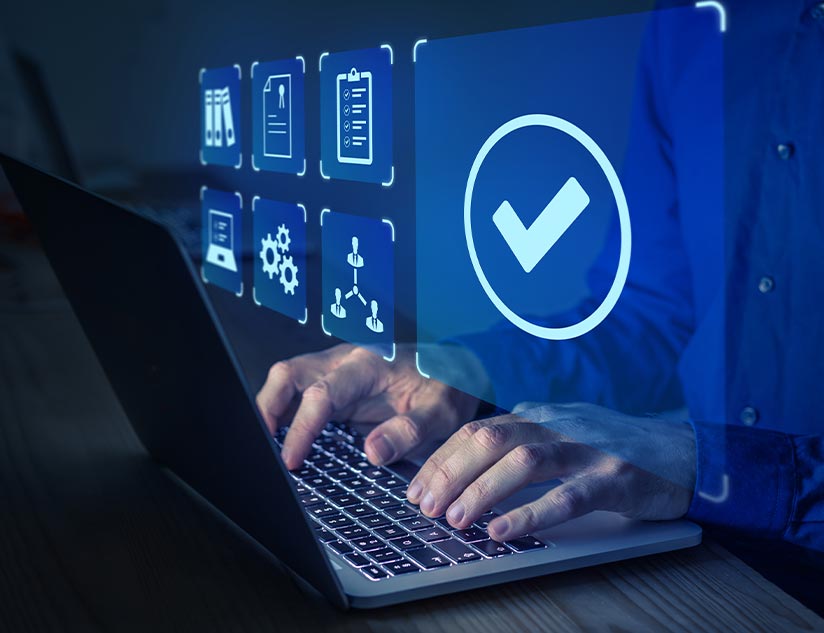Deep technology penetration and willingness to embrace digital learning are key drivers for the burgeoning EdTech industry. In addition, an alarming teacher shortage and learning gaps discovered over the past few years have opened fresh avenues of growth. The K-12 segment is the second largest contributor to this growth, closely following the professional learning segment.
How Does Compliance Impact EdTech Companies?
Compliance with curricular, technology, and accessibility guidelines ensures the adoption of a digital learning solution across geographies. This is because:
- It improves the ‘security hygiene’ of the online learning management system. Proper encryption and removing cloud vulnerabilities, for instance, improve the security of content and user data. In fact, adhering to privacy requirements, especially for the K12 group, is mandatory in some countries even for entering the market.
- Compliance with state-laid curricular and assessment norms improves the chances of product adoption and eliminates the risk of lawsuits that damage reputation more than finances. In addition, knowing the different standards affecting operations is critical, as learning standards, expectations, and techniques vary significantly across geographies.
- Addressing the learning requirements of different groups of learners requires lesson plans, assessment models, and pedagogy to align with regional expectations, curricula, and guidelines.
Compliance Requirements for EdTech Companies
Compliance across different countries differs significantly, as there may be different cultural, linguistic, and ethical constraints. Here are a few regulations an online learning solution must abide by to enter certain markets:
European Union
The Digital Education Action Plan (2021-2027) enlists the requirements to create a healthy digital learning ecosystem for green and inclusive learning. In addition, the General Data Protection Regulation (GDPR) in the European Union strives to curate a safe, secure, and private digital learning experience. The consequences of non-compliance may lie between 2% and 4% of a company’s revenue.
United States
Entering the US market requires EdTech companies to primarily follow FERPA and COPPA. Meeting DEI requirements is also essential to serve students from multiple socio-economic backgrounds. COPPA recently emphasized the need for increased scrutiny and penalties for violation of children’s right to privacy if an EdTech company uses the information for any purpose other than clearly specified. It has also mentioned that a fine of “$43,280 per privacy violation per child” may be imposed on defaulters.
Asia-Pacific
The Asia-Pacific Association for International Education has emphasized bringing forth regulations to expedite sustainable and accessible online education in its March 2023 session.
Led by India, home to the world’s second-largest number of tech companies, Asia is a market full of tremendous opportunities and regulatory requirements. India, for instance, has multiple laws guiding e-learning, such as the Information Technology Act and Sensitive Personal Data Rule. China and Japan also have stringent regulatory frameworks to foster digital education.
Global
At the global level, guidelines like WCAG, LTI, and Tin Can API lay down necessary improvements in the content, assessments, and feedback processes to make e-learning inclusive, holistic, and instrumental in achieving learning goals.
- WCAG focuses on including learners with physical or cognitive impairments.
- Tin Can API emphasizes improving the learning experiences of students by making the content more engaging and rewarding.
- LTI is the learning standard every EdTech company must comply with to promote seamless course and credit transfers across learning platforms, digital and traditional.
These regulations are introduced to maintain interoperability and ensure inclusive and cohesive learning practices across digital platforms.
Outlook for the Global EdTech Market
The global education technology market stood at $123.40 billion in 2022 and is forecasted to expand at a 13.6% CAGR from 2023 to 2030. An EdTech solution must meet the diverse requirements of aligning the course with the distinct curricula in addition to language and delivery formats across learner levels and locations to make the most of the available opportunities worldwide.
Newer learning paradigms such as homeschooling, AR/VR-based experiential learning, self-paced neo-education, and skill-centered micro-learning are gaining traction. An online learning solution can penetrate at the granular level only if it accommodates the state and national education agenda. Compliances can give exposure and provide accessibility, but what matters to educators and educational institutions is facilities that enable hyper-personalized learning in addition to catering to a large number of students in the absence of teachers. All this also allows the differently abled to experience the same curricular growth as their peers without disabilities.
An EdTech company has the mammoth task of learning and implementing regulatory guidelines in its digital learning solutions. This can be simplified by partnering with a learning technology provider like MagicBox™. MagicBox’s advanced technology-based plug-and-play tools can easily test and suggest improvements to meet SCORM, QTI, and LTI guidelines and help create high-quality online learning material. This enables educational institutes to support multiple pedagogies and integrate with any globally compliant third-party digital learning environment. They are further equipped with the technology and expertise to become the first ones to adopt new regulations and seamlessly help transform legacy content. Schedule a demo now to learn more about how their content authoring and distribution solutions can help accelerate your time to market.















